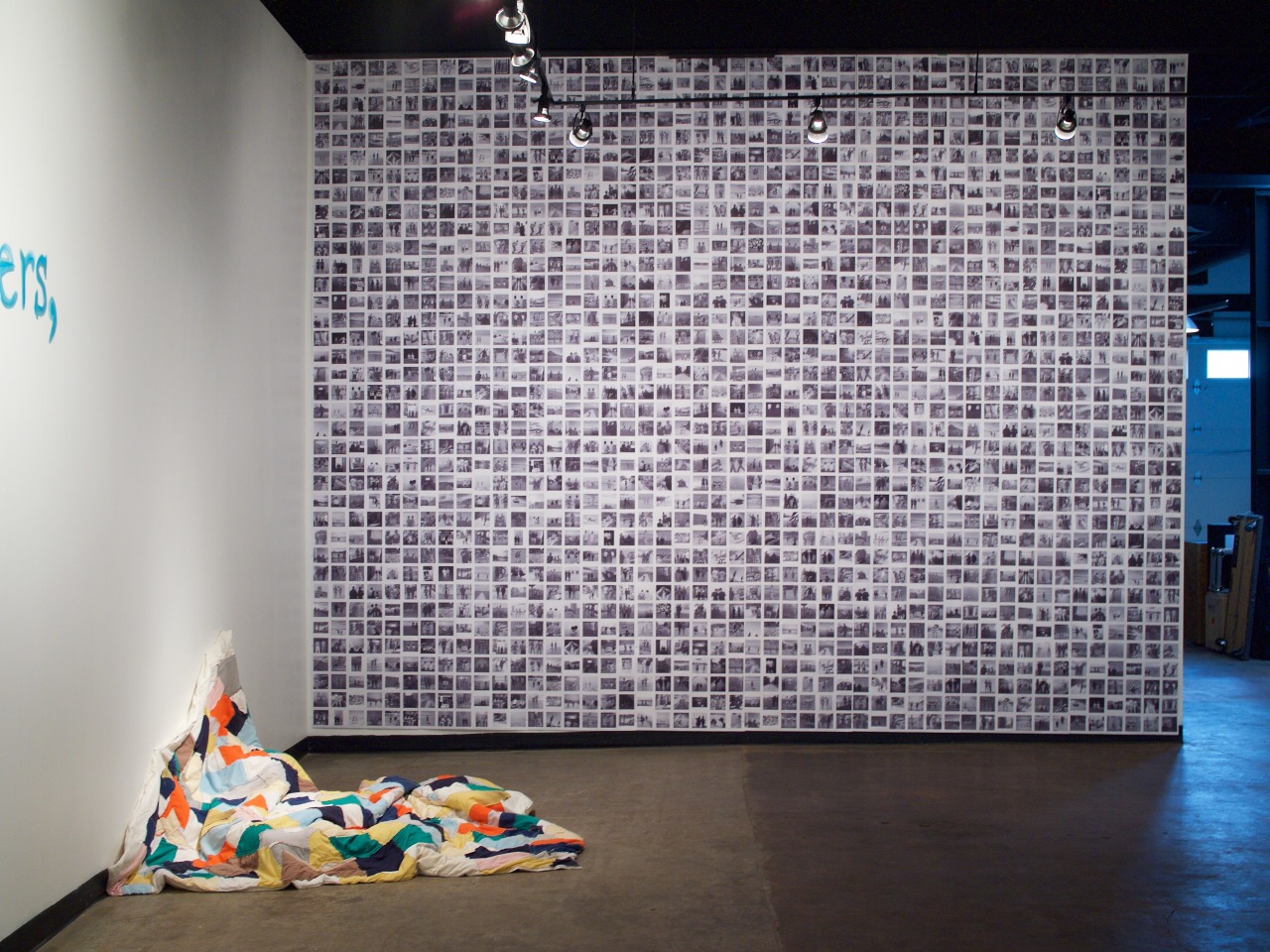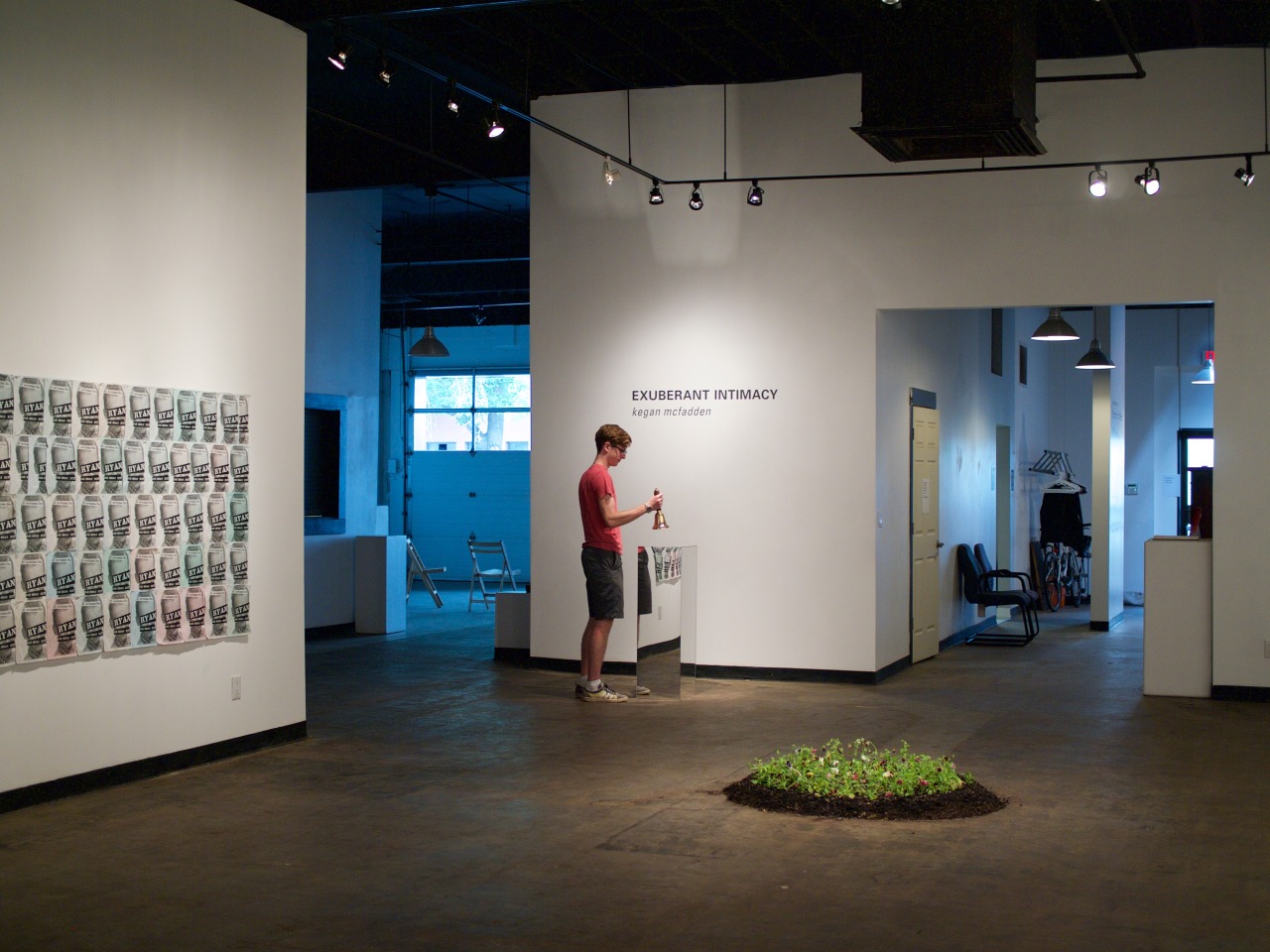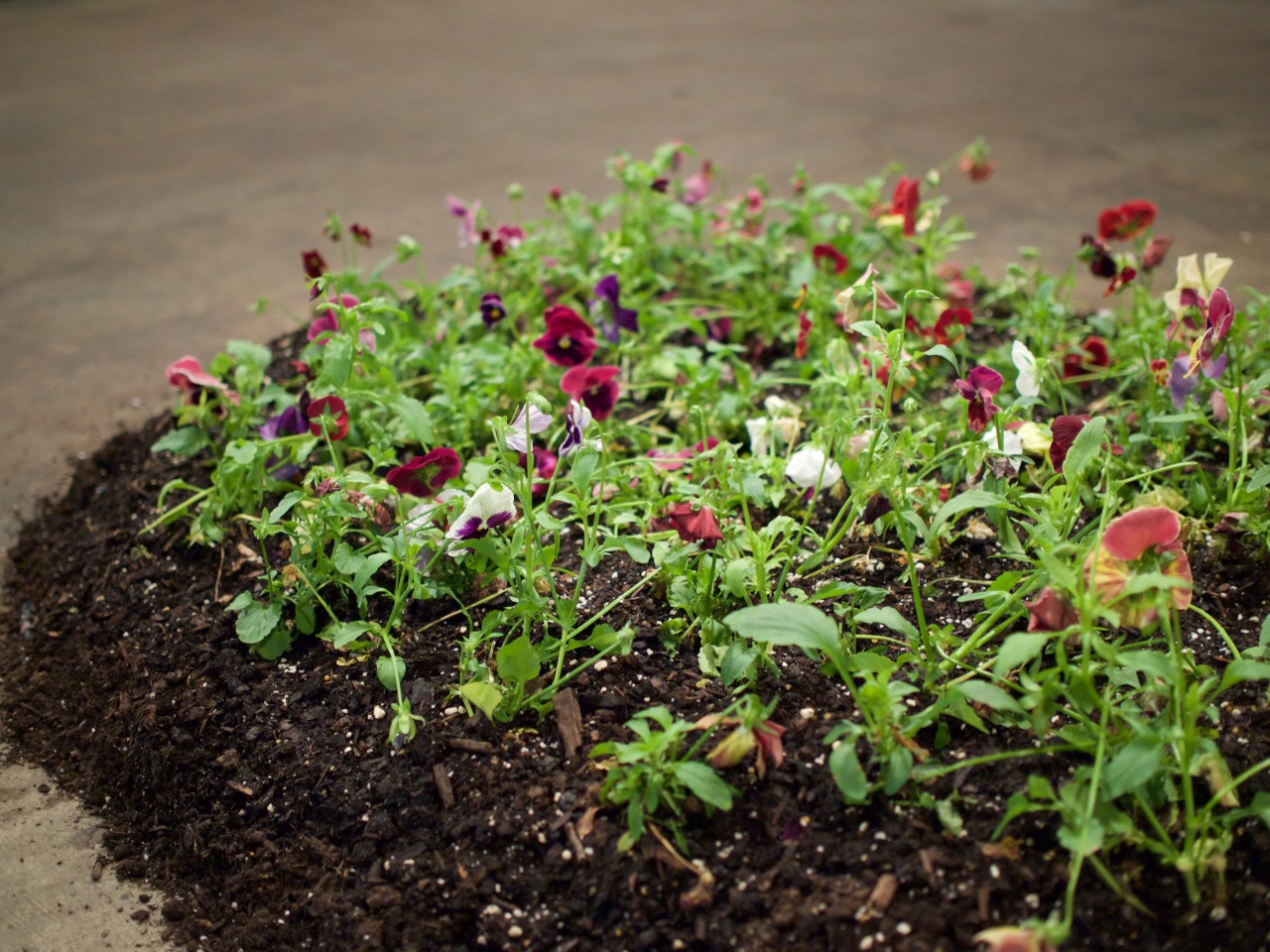Kegan McFadden | Exuberant Intimacy
June 23–July 29, 2016
Opening reception: Thursday, June 23 at 5 pm
In a synthesis of print, text, and found materials, Kegan McFadden builds a history through his relationships with six men. From a wayward garden of pansies to a misshapen memorial quilt and a wall of 2000 Instagram snaps, these installations document a self-portrait of a life-long developing queerness, and make a case for public recognition over personal secrecy.
Homo Absolutus
By Letch Kinloch
We all know how it is with memory: The more you take out the pieces, spend time with them, turning them over in your mind and really looking at them, the more leaky and unreliable they become. Subject to revision and loss, we never return a reminiscence in the same shape that we took it out. The subjective concepts of space, time and causality affect our readings of our own internal archive, updating them according to the parameters and categorizations we constantly unconsciously delineate.
At one time, the pineal gland was heralded as the key to the ungraspable complexity of feeling and terrible human-ness: the seat of the soul, grain-of-rice-sized and contained, its comfortingly definable edges buried deep in the centre of the brain. But in bundle theory, the widely accepted explanation for the human brain’s development of consciousness and identity, the inner workings of memory and identity are cobbled from disparate parts of the brain. Like patching together glimpses of a dream upon waking, our sense of the whole is created by a willingness (a desperation) to make the pieces fit and smooth over the edges on our way to a cohesive personal narrative.
Along the seams and threads of our internal archive we are a subject to breaches. We occupy many states and no real state at all. The artist, conscious wielder of memory, dictates visibility and invisibility; what is remembered and what is forgotten; what shapes a person and the mirror that is peered into.
The archive is a place. The archive is a body. The archive is what exists within. The archive is a process. The archive keeps changing shape. The archive is subject to wild accusations and mood swings.
How do we define ourselves when we are spilling outside of the parameters and “conventions of intimacy”1? What shape do our personal definitions take if we are creating the meaning of our selves while myopic; too close to another to see ourselves properly? Our ability to memorialize the quiet private moments becomes entwined by the presence of another. What is the path to consciousness in the face of intimacy? We are endlessly archiving while broken-hearted, exuberant, horny, exposed, drunk, spilling all over the place—our narratives in flux, becoming ourselves as we trace our hands over the shapes of others; defining our edges as we understand theirs.
How much information is required to represent a person? We invent them as we invent ourselves; a million snapshots of the possible profiles of a relationship. All of these men are Kegan; they are all a part of each other because, though they exist/ed in reality, their place within his memory is something he invented, “components of a concept...that continually comes back to us, like dead stars whose light is brighter than ever.”2 They are romantic remnants, summoned ad infinitum, sparking connections, flickering as an outline, gathered through experience, given a narrative and made whole—the entire, comprehensive, perfect structure of the human body, continuously becoming and dissolving: the homo absolutus.
1. Kegan McFadden.↩
2. Deleuze & Guattari, What is Philosphy? Columbia University Press, 1994.
-
Letch Kinloch is an artist and arts administrator who originally hails from Saskatoon. She is the founder of Also As Well Too, a public artist book library in Winnipeg.
Kegan McFadden wishes to acknowledge the following individuals for their enthusiasm, guidance, and support: Benjamin Chafe, David Churchill, hannah_g, Letch Kinloch, Divya Mehra, Denise Miller, Jón Olafson, Lucas Pauls, Collin Zipp, as well as the staff of Latitude 53. Research and production for Exuberant Intimacy has been supported by the Winnipeg Arts Council.




